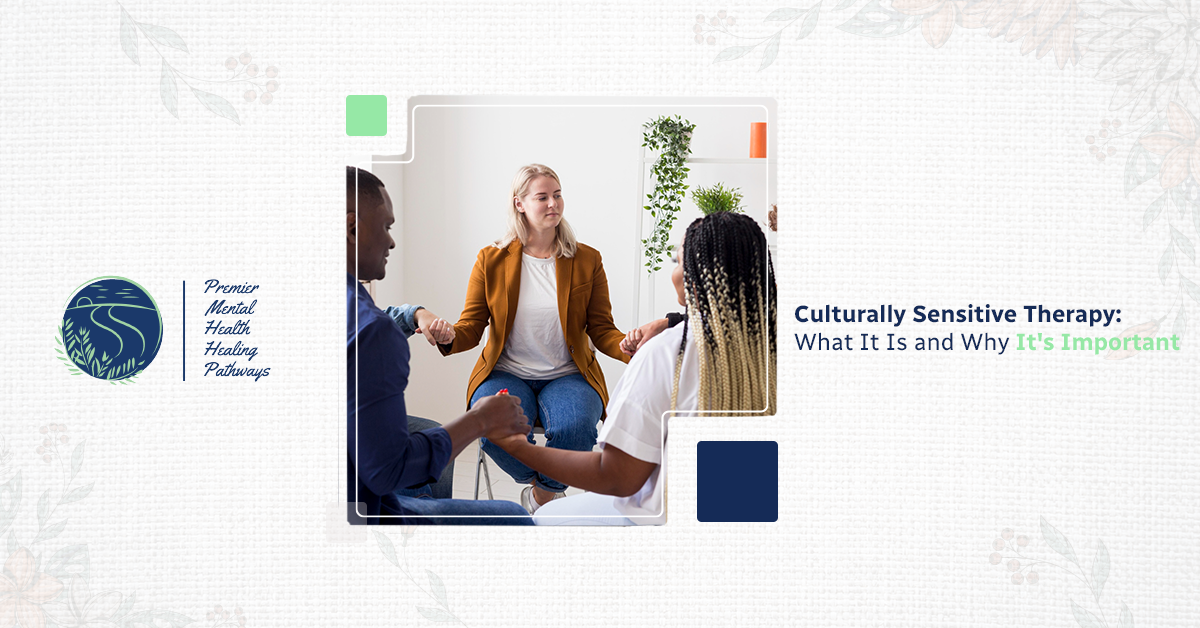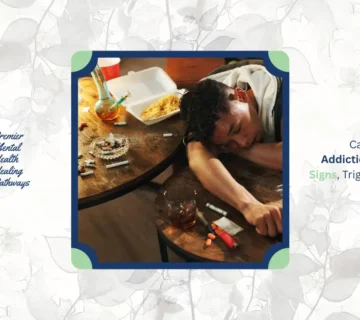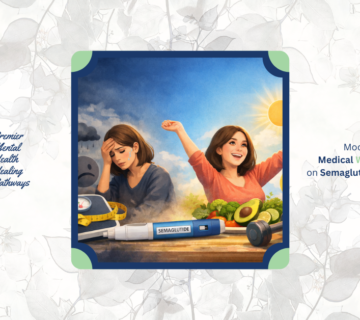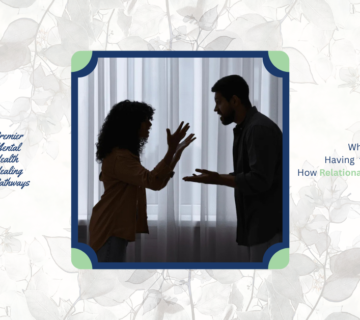There’s a shift when someone across from you understands the backdrop—family expectations, traditions, culture, and the way you express grief.
That connection is the heart of culturally sensitive therapy, which is what we hold close to Premier Mental Health Healing Pathways.
Therapy shouldn’t feel like you’re leaving parts of yourself—the accent, rituals, spiritual practices—out of the door.
What Culturally Sensitive Therapy Looks Like
Culturally sensitive therapy acknowledges that your cultural background is not independent of your mental well-being, but rather, your mental well-being is your background.
How you manage feelings, cope with stress, and consider relations all have a root.
Your therapist doesn’t just tolerate your cultural differences. They also lean into them. They ask questions like “How does your family usually handle this?” instead of assuming they already know.
This kind of therapy recognizes that healing looks different across cultures.
- Sometimes, it involves talking.
- Sometimes, it consists of honoring ancestors.
- Sometimes, it means understanding that seeking help is an act of courage that goes against everything you were taught.
Beverly Ann White, Psychiatric Nurse Practitioner, MSN, APN RXN, PMHNPBC at Premier Mental Health Healing Pathways, provides culturally sensitive care that honors your complete identity.
The best therapy happens when all of you get to show up.
Why Is It Important
When therapy honors who you are, something shifts:
- You stop spending energy explaining yourself and start using it to heal
- The shame around being “different” starts to dissolve
- Your cultural strengths become part of the solution, not obstacles to overcome
- Trust builds faster because you’re not holding back pieces of yourself
It is supported by studies as well.
Culturally sensitive care gives clients a sense of appreciation and recognition, giving them more safety, security, and confidence in their providers.
Real work can take place when you feel safe.
Who Benefits from Culturally Sensitive Therapy?
Everyone. But it’s especially impactful for those navigating:
- Minority Stress — e.g., racial, gender, or sexual identity-related struggles
- Immigrant Experiences — e.g., adaptation, generational gaps
- Faith-Based Conflicts — e.g., feeling misunderstood for religious practices
At Premier Mental Health Healing Pathways, we hold space for whatever you bring to the table and ensure that therapy feels natural.
How Can I Actually Tell If My Therapist Is Culturally Sensitive?
It is natural to question whether your therapist understands you. The following are some things to observe:
- They listen with openness and patience
- They’re interested in your background without making you teach them everything
- You do not feel judged and boxed in
- Your culture, traditions, and language are included in the dialogue
- You are invited to express what is wrong and what is good
- Along the way, they learn about various sides of the situation
A Space for Everyone
Mental health care should feel like coming home. Once you receive therapy that acknowledges the entire person you are, you can become healed in unexpected ways.
With our culturally sensitive approach at Premier Mental Health Healing Pathways, we provide room to be yourself and have the support you need.
Reach out to us, and let’s start this conversation.
FAQs
Is it exclusive to certain communities?
Cultural influences dictate everything: the region you live in, religion, your own ancestral practices, and social and economic standing.
It is a way of viewing a celebration of any cultural identities that matter to you.
How do I know that my therapist gets it?
They will not assume anything, will be eager to know, and will be capable of adjusting their styles to your requirements.
Does it require more time to get results?
Normally, the opposite. When you do not have to explain and justify your cultural reality, you can get into the real work quicker.
What if my cultural identity is complicated?
Good culturally sensitive therapists understand that identity can be layered and evolving.






No comment